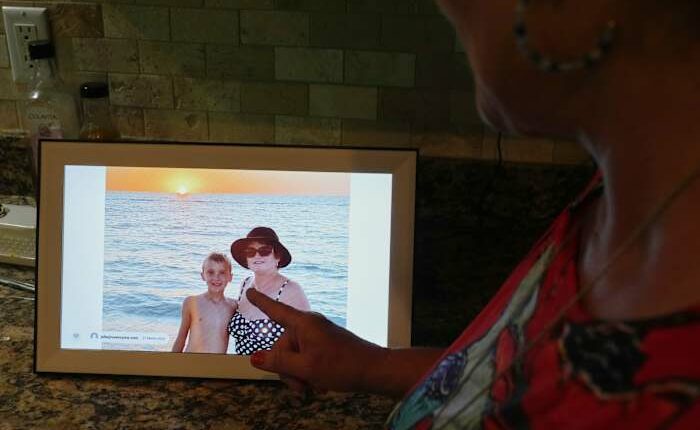Share this @internewscast.com

GAINESVILLE, Fla. – Regardless of their offenses, states have a duty to provide education to students in juvenile detention centers. This task is inherently complex, and success stories are hard to come by.
In Florida, where over 1,000 students are in long-term detention, the state shifted their education to an online format last year. Despite substantial evidence that remote learning was ineffective for many students during the pandemic, the state’s juvenile justice system partnered with Florida Virtual School, one of the country’s most established and sizable online learning platforms.
State officials hoped that Florida Virtual School would introduce more consistent and challenging standards to juvenile justice classrooms. The intention was for students to have the option to continue their online education even after leaving detention, eventually leading to graduation.
However, an investigation by the AP revealed significant issues with this online education approach. Not only are students finding it challenging to learn, but their growing frustration with the virtual format often results in behavioral issues, thereby prolonging their time in detention.
Here are key takeaways from the investigation.
Detained students say they’re getting little support with online school
During interviews, students expressed difficulty in comprehending their online assignments. With the adoption of Florida Virtual School, the centers stopped staffing each subject with in-person teachers, depending instead on online instructors. Adults in the classrooms mainly serve in supervisory roles and are often unable to answer students’ questions or provide guidance. Students also struggle to receive adequate support from online educators.
Numerous letters from detained students, sent to lawmakers and obtained by The Associated Press, highlight challenges in accessing or understanding online assignments, compounded by minimal staff assistance.
“Dear Law maker, I really be trying to do my work so I won’t be getting in trouble but I don’t be understanding the work,” wrote one student. “They don’t really hands on help me.”
Wrote another: “My zoom teachers they never email me back or try to help me with my work. It’s like they think we’re normal kids. Half of us don’t even know what we’re looking at.”
Frustration with school has led to outbursts — adding to students’ time in custody
When students misbehave in long-term confinement, their stays can be extended. At the low end is a “level freeze,” when a student can’t make progress toward release for a few days. For more serious offenses, students are sent back to county detention centers to face new charges. The weeks they spend there are called “dead time,” because they can’t count toward their overall sentence.
And since Florida adopted online school in its residential commitment centers, students’ frustration with their learning has led to longer stays.
One teen described having trouble passing an online pre-algebra test. The adult supervising the classroom couldn’t help him. Frustrated, he threw his desk against the wall. He received a “level freeze” of three to five days, essentially extending his time at the residential commitment center.
Another teen has broken three laptops, his grandmother says — two of them in frustration with not receiving help with online school. Each offense has added to his time in confinement. He initially was sentenced to six to nine months for breaking into a vape store, but now is on track to be locked up at least 28 months.
The total number of youth in Florida’s residential commitment centers increased to 1,388 in June, the latest data reported by the state, up 177 since July 2024, when the department adopted virtual instruction. That could indicate detainees are staying in confinement longer.
“Correlation does not equal causation,” responded Amanda Slama, a Department of Juvenile Justice spokeswoman.
Going back to school after leaving detention is tricky
One of the arguments Florida made for using online schooling was that students could continue their studies at Florida Virtual School after leaving detention, when many struggle to re-enter their local public schools.
That’s not as easy as it seems. One student in AP’s investigation was refused entry to his local middle school; officials said he was too old to enroll. When his parents tried to sign up for Florida Virtual, they were told they couldn’t sign up so late in the school year.
Florida Virtual leaders say they provide a transition specialist for each student who leaves residential commitment to help them find a school. But this family says they were never offered this help. No one told them about a special version of Florida Virtual that would have allowed the student to pick up where he left off in detention.
____
The Associated Press receives support from the Public Welfare Foundation for reporting focused on criminal justice, and AP’s education coverage receives financial support from multiple private foundations. AP is solely responsible for all content. Find AP’s standards for working with philanthropies, a list of supporters and funded coverage areas at AP.org.
Copyright 2025 The Associated Press. All rights reserved. This material may not be published, broadcast, rewritten or redistributed without permission.












